As deforestation surges, Brazil moves to weaken indigenous and environmental safeguards
Critics accuse Bolsonaro and allies of using the pandemic as cover to rush through amnesty for past destruction and occupation of forested land, and expose indigenous land to higher risk of occupation
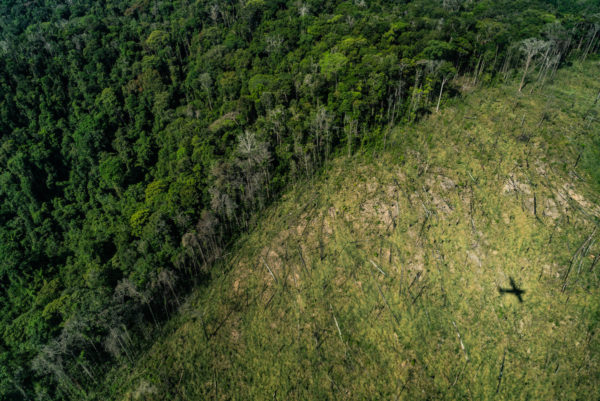
With attention focused on the escalating healthcare crisis in Brazil, the administration of Jair Bolsonaro is attempting to push through new rules which would weaken safeguards against the invasion of indigenous lands and the deforestation of the Amazon.
Despite the pandemic, congress may soon take a hasty online vote on legislation that would effectively hand over swathes of illegally seized and deforested land to large-scale illegal land-grabbers, while Brazil’s Indigenous agency Funai has slashed its protection for undemarcated indigenous lands.
The moves come as deforestation – and attacks on land belonging to indigenous communities – are soaring during the pandemic.
In March, while much of the rest of the country stayed at home, deforestation rose by 30% compared to the same month a year ago, according to the country’s space research agency, INPE. Deforestation alerts for the first three months of this year were 51% higher than last year, with an area roughly the size of New York City lost in those three months alone.
The most recent data available shows that for the first 16 days of April alone, deforestation alerts were 208 sq km, only slightly less than the 247 sq km of alerts for the entire month last year.
The latest move could further accelerate the trend.
Provisional Measure 910 – to legalise many land-grabs up to 2018 – may be voted on in the next few weeks through an ‘emergency’ online only vote, minimising debate and scrutiny and allowing the government to pass it before the current proposal expires.
This new legislation is significant, analysts say, because it could allow huge swathes of illegally cut down and occupied land – often taken by criminal gangs – to be bought by those who have taken them for a fraction of their real value.
Meanwhile, a rule passed by Funai’s president last week, IN 09, strips yet-to-be-demarcated but indigenous lands of their designation as “indigenous” in the land registry, regardless of whether or not indigenous people, including isolated tribes, live on it.
The technical rule-change is highly significant as it will allow people occupying indigenous land – usually for the purpose of deforestation and agriculture or mining – to obtain a certificate that the land is undemarcated. This certificate can subsequently be used in support of a land-grabber’s claim to legalise property on that land under the new law, MP 910.
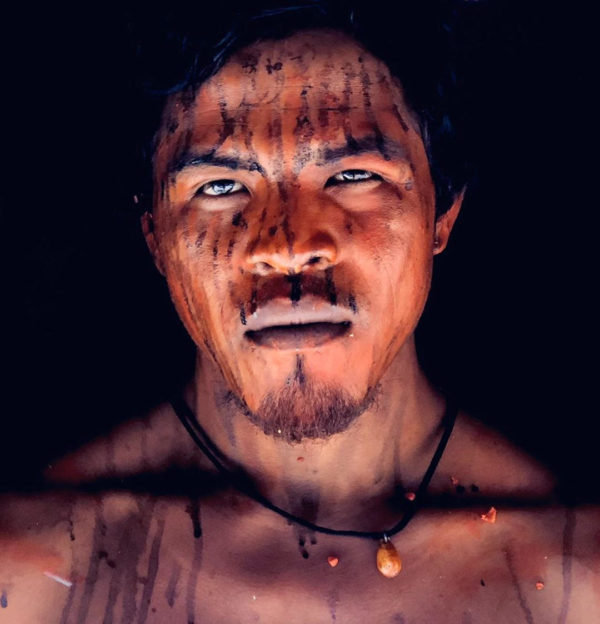
Taken together, the measures pose a serious and imminent threat to the roughly one third of indigenous land that has not yet been demarcated by the state, and will encourage even greater deforestation, even as the pandemic spreads.
“People who are in undemarcated areas, including isolated Indians, would have their land for sale,” said Cristina Leme Lopes, senior legal analyst at the Climate Policy Initiative (CPI). “We are no longer in the risk phase, we are in the damage phase.”
The government has said that granting legal titles to farmers who have been occupying federal lands in a “tame and peaceful way for many years” will “allow them to rise above subsistence farming and improve their income”.
But critics of MP 910 told Unearthed it instead benefited large-scale farmers and would fuel more violent conflicts with Indigenous people and encourage yet more deforestation, even as rates of destruction have already soared to their highest in more than a decade under the administration of far-right President Jair Bolsonaro.
They claimed those in government who want the bill passed – the powerful agribusiness lobby and other development interests – are seeking to take advantage of the pandemic to pass the MP as an “emergency” online vote.
“This land issue does not meet the requirement of being an emergency,” said Brenda Brito, a lawyer and researcher at the Imazon institute, adding that the Bolsonaro administration had used the cover of the pandemic to skip important legislative steps, during which the measure could have been rejected.
“Now,” she added, “we are facing the risk of an online vote, during which representatives will not be under the same pressure as they would be in person in the plenary.”
Little oversight
Land-grabbing is well-established as a crucial driver of deforestation in the Amazon, accounting for 35 percent of deforestation in the Amazon between August 2018 and July 2019, according to the Institute of Amazonian Research (IPAM).
Meanwhile, environmental oversight – already stymied by under-funding, political interference and Bolsonaro’s explicit contempt for conservation – is further hamstrung by the pandemic. Staff from Ibama and ICMBio, Brazil’s environmental watchdog agencies, have said that the risks the virus poses to their ageing staff members, plus travel restrictions, are leaving them no choice but to send fewer agents into the field.
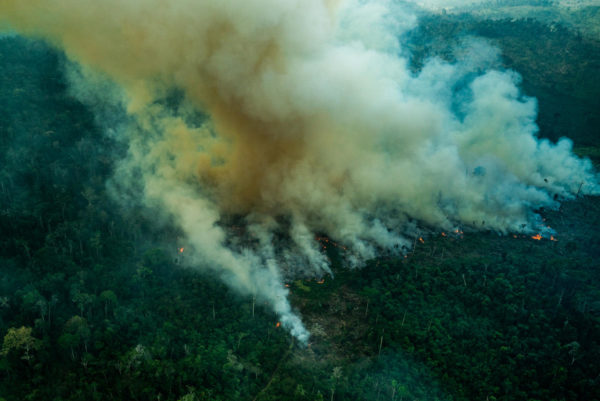
NGO Imazon estimated that this provisional measure could lead to the deforestation of an additional 16,000 square kilometers by 2027, by persuading land-grabbers that there is little to lose and all to gain if further amnesties are granted down the line.
“If passed, it would be a hard blow against any hope that there will be any regaining control and fighting deforestation,” Brito said. “It will, in fact, be the end of that hope, if anyone is still hopeful that the current government will actually face and fight deforestation. Because this measure will end up stimulating even more than is happening now.”
A matter of life and death
The deadline for a vote to finalise the measure approaches alongside reports that invasions into indigenous territories are escalating in number and intensity.
“The situation at the moment is tense, lately there are many invasions,” Bitate Uru Eu Wau Wau, a leader of the Uru Eu Wau Wau tribe in Rondônia, told Unearthed. “We have seen an area of more than 200 hectares felled.”
According to data from the Pastoral Land Commission, violence against Indigenous people reached its highest level in 11 years in 2019, with 32 Indigenous people killed, and 201 death threats.
One of those who had received death threats was leader Ari Uru Eu Wau Wau, who was found dead earlier this month. Bitate said people in the tribe were terrified that he had been killed as retribution for publicly denouncing land grabbing and deforestation within their land, although they had no proof.
Eric Karipuna, leader of the Karipuna people in Rondônia, told Unearthed earlier this month that there had been more loggers clearing forest on their land since the beginning of the Covid-19 quarantine. They have submitted a complaint to the local prosecutor.
The measure does not affect indigenous territories that have been demarcated directly, as they are theoretically protected. But experts say that the effect of Bolsonaro’s moves to grant amnesty for recent deforestation of public lands is to give the impression of impunity for all kinds of occupation, including of indigenous lands and conservation units.
“They think: ‘I will invade the indigenous or quilombola land, I will put myself here and one day I will get this land.’ This is a real risk,” said Claudia Azevedo-Ramos, Professor of Amazonian Studies at the Federal University of Pará.
Bolsonaro has consistently signalled his support for stripping indigenous lands of their protection, both through legislative means – in February he sent a bill to Congress that would open them up to mining, agricultural work and hydraulic energy production – and otherwise.
Most recently, Bolsonaro ally and Minister of the Environment Ricardo Salles sacked the head of environmental protection at IBAMA, Olivaldi Azevedo, two days after a TV programme broadcast an IBAMA mega-operation to remove gold miners from indigenous land in Pará. Brazil’s public prosecutor will investigate Azevedo’s dismissal, O Eco reported.
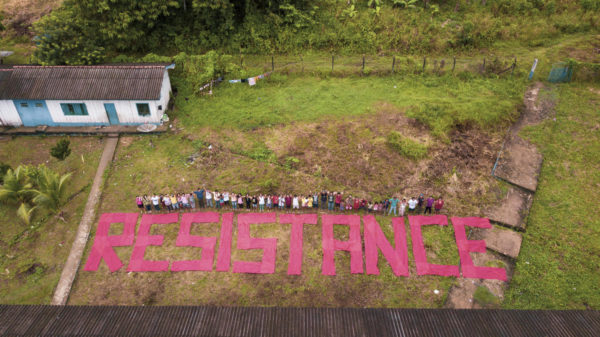
For land that is historically indigenous, but that has not been formally demarcated, the risk is even more acute.
In Mura territory in Amazonas state, Indigenous people live in a relatively small demarcated area, but traditionally roam over a much larger area of adjacent land to collect the nuts and fruit which they sell to make a living.
“We have recently observed, even at this very moment, the opening up of paths… within the areas of traditional use by both Indigenous peoples and riverside dwellers,” said Lucas Ferrante, from the National Institute of Amazon Research (INPA), who is researching the impact of land-grabbing on the Mura people.
“They are marking the occupation of the area for land grabbing, as well as for the extraction of wood, ore, illegal mining. People doing all of these activities are already invading areas of traditional [but not demarcated] use.”
Funai’s new rule – reportedly passed unilaterally by its president, Bolsonaro ally Marcelo Augusto Xavier da Silva – would give “carte blanche” for any occupation on unapproved indigenous land to be granted land rights, said Lopes.
Not only would that land be lost, but any chance for demarcation, and the additional protection it brings, would be severely jeopardised, she said.
“They will say: ‘Now this is a consolidated agricultural area,’ for example. The damage is enormous.”
Silva, a former police officer with strong links to agribusiness, was hand-picked by Bolsonaro for the post last July after his predecessor Franklimberg de Freitas was fired.
“Behind the scenes,” said a current Funai employee who spoke on condition of anonymity, “Franklimberg was sacked for being unfavourable to this change.”
Funai’s employees’ association fiercely opposes the new rule. In a statement they said that it “turns Funai into an unit of real estate certification for squatters, land-grabbers and land developers in indigenous lands”.
There are 237 indigenous lands awaiting full demarcation in Brazil, which is infamous for its Kafkaesque bureaucracy; one demarcation process began in 1982, and has still not been finalised.
‘The Land-Grabbing Law’
MP 910, which was published by President Bolsonaro at the end of last year, but needs to be approved by Congress before May 19, will legalise properties on public land that were illegally deforested before 2018 and occupied irregularly, providing the residents meet certain requirements. This is an extension from a previous cut-off point of 2011, which was itself an extension of the 2004 deadline.
“Every time they change the time frame, it sends the message that these occupations may continue in the future, because soon the law will be changed,” said Brito. “There is no credibility in setting a timeline that is constantly changing.”
The proposed law would also remove any requirement for properties to be inspected before the titles are granted, which Brito said would enormously increase the scope for making claims based on violence, or fraudulent claims, with impunity.
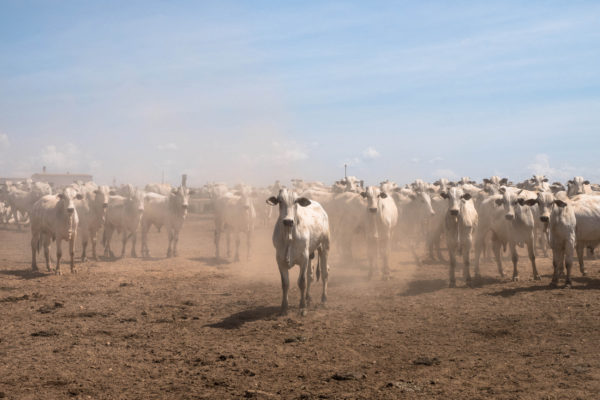
“It is the inspection that finds out if there is a conflict, if in fact the person actually lives in the area, or uses the area according to the rules,” she said.
Occupying and clearing land has historically been a route for ownership of land in Brazil, and, at times, the government has actively encouraged occupation on a small scale. In the 1970s, landless peasants were encouraged to settle in the Amazon and create smallholdings.
But MP 910 would allow people who have illegally occupied much larger properties, of up to 2,500 hectares – just shy of the size of the city of Bath – to take legal ownership without any repercussions for deforestation, without bidding against other parties, and for as little as 10% of market value.
As such, the move would provide a high reward for large-scale illegal deforestation, one that land grabbers may well be inclined to bet on in future.
Azevedo-Ramos said that the amendments made to this measure had transformed it into something that benefited land-grabbers on a much larger, criminal scale.
“There are small-scale farmers who have been there peacefully and legitimately for a long time…because they were encouraged by the government itself to be there,” she said. “But this is completely different from land speculators, land-grabbers who take advantage of the total lack of government oversight, or who are even encouraged by the rhetoric of the government itself, to take advantage of the situation and pretend they have been living there for a long time.”
Typically, these land-grabbers are more likely to be organised criminal enterprises, because clearing large areas is a big job requiring significant outlays. They may systematically select land and register it under various different names.
First they have to find vacant, publicly owned land. Then the trees must be cut down, the shrubbery cleared. Next, usually pasture is planted, and cattle grazed. They might forge documents. The term for land-grabbing – ‘grilagem’ – comes from the practice of putting a forged land deed in a box or drawer with crickets (‘grilos’). As the insects nibble at and otherwise stain the document, they lend it a yellowed, authentic appearance. They might register different chunks of land under the names of multiple ‘laranjas’ (stooges) to circumvent the rule that you will only get amnesty if you own no other property.
Essentially, they are taking a bet on the government handing the deeds over. This bet has felt even safer since Bolsonaro came to power, said member of Congress Rodrigo Agostinho, who as leader of the environmental parliamentary front is working against the measure.
“President Bolsonaro was elected with numerous proposals and one of them was precisely to encourage the occupation of the Amazon,” he told Unearthed. “There is a significant portion of large rural producers and ranchers, in addition to loggers and miners who are pressuring their deputies to vote on this Provisional Measure that legalises and transfers public property, public lands into their hands.”
The measure was a pure act of political theatre, he said, meant only to shore up support with his base and with powerful agribusiness allies.
There was simply no need to rehash the measure now, agreed Brito, particularly as an emergency online vote in the midst of a pandemic. The existing legislation was negotiated only three years ago, under former President Michel Temer, and does not expire until 2021.
“It makes no sense. There is no technical legal justification,” she said. “It was a political choice that will… stimulate more invasions and deforestation, in the expectation that the law can always be changed.”




